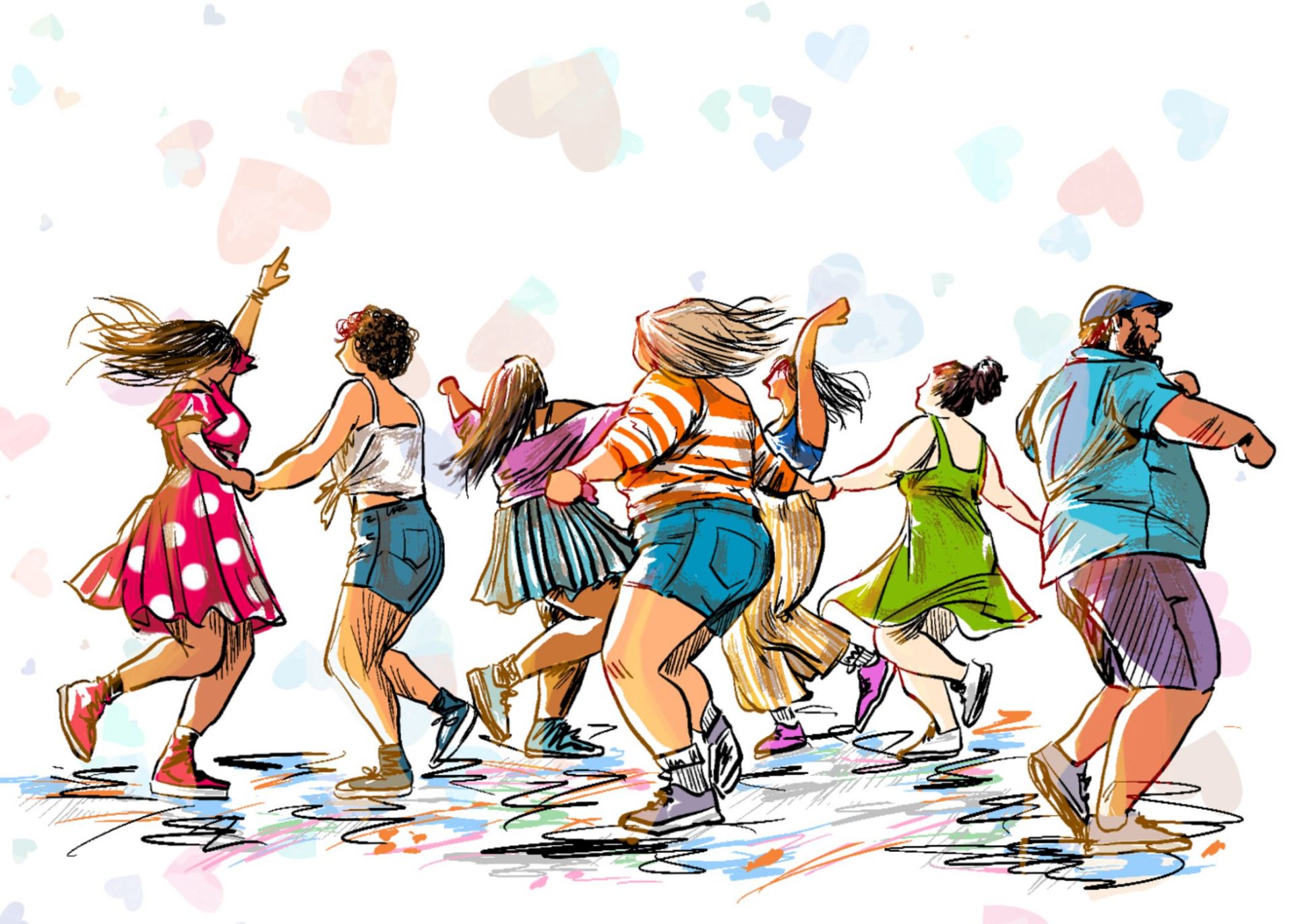“Are you not confident because of your weight?” my mom asked me. This pointed but well-meaning question came after I texted her about my professor telling me that I should speak up more in class. Although I denied that my weight affected my confidence level and insisted that I was just shy, my mom knew that there was something more. After some introspection, I had to admit that she was right. Her question made me realize how my size and the widespread negative societal perceptions of plus-size people have impacted how I act and perceive myself not only at Georgetown, but within the context of the world around me.
Weight stigma manifests itself in many ways, with plus-size people earning less money at jobs, receiving disproportionate amounts of hate comments on social media, and being bullied by their peers. These manifestations are rooted in the stereotypes of overweight people being “lazy,” “gross,” and “undesirable” and create lasting effects on one’s physical and mental well-being.
In many ways, the impact of these prejudices are felt in many facets of our lives and communities, including right here at Georgetown. Although the desks offered by the university are usually too small for plus-size students, we often end up sitting in discomfort because asking for accommodations would introduce more judgments of our bodies, especially when the prevailing attitude is that we should just “deal with it.” Beyond discomfort, sitting in seats that are too small can cause pain which affects our ability to focus and retain information. In class, plus-size students like me often don’t want to bring any attention to ourselves. Most of us already stand out as the biggest in the room, so we won’t raise our hands or answer questions because it leads people to notice our size even more. We also tend to over-apologize when we may be slightly in someone’s space or bump into someone because of our size. Constantly hearing negative comments about our weight makes us feel embarrassed and want to avoid large group gatherings entirely.
Low self-esteem and embarrassment are only the beginning of the long list of effects that weight stigma and discrimination can have on overweight people. Over time, constant exposure to weight-based prejudice can lead to the development of eating disorders and suicidal ideation.
During certain periods late in my freshman year, I secretly became focused on not gaining any weight, which developed into a bad relationship with food. If I ever felt like I ate too much one day, I would undereat the next day, often restricting myself to just one meal to punish myself. I would avoid communal meals or snacks and I never felt comfortable enough to get seconds despite my hunger. Even when I did eat at the dining halls, I often sat by myself, far away from others. Though this year has been significantly better, my eating habits are still something I am working to improve.
Georgetown’s lack of support for the plus-size community and lack of knowledge about the resources we need to succeed academically worsens the body inclusivity problem on campus. The university claims to be committed to fostering a diverse and inclusive environment, however it is clear through their actions, or lack thereof, that they don’t believe that environment includes people of different body sizes. The personal biases people have about plus-size people are evident in how they treat us, and the Georgetown community is no exception.
In my first semester at Georgetown, I had two classes in lecture halls that had seats too small for my body. I had accepted the discomfort during lectures, but insisted to the Academic Resource Center (ARC) that I at least be provided a suitable desk and chair for the final exam. But they never provided me with proper seating. Given what happened that fall, I reached out to the ARC during winter break to ensure I had seating for the spring semester, which they did provide. However, near the end of the spring semester, when I needed more accommodations for a final, they directed me to other resources that, in the end, were ineffective.
These difficult times at this university heightened the stress and anxiety I was already experiencing as a college student away from home. My professors and deans were the only people I could turn to for help. But despite doing all they could to help me, structural issues and a general lack of established resources limited what they could do.
Georgetown needs to educate administrators about the different body sizes on campus and help them understand the resources we need. Talking to plus-size students and listening to our experiences should be the first step to learn what can be done. The university should be more aware and actively think about the body inclusivity problem on campus. It may be impossible to make the seating in all classrooms size-inclusive, but providing accommodations when plus-size students ask for them is something the university can easily do.
Plus-size people will always exist, and should be able to learn in a comfortable environment, receiving the same level of respect given to their peers. Hateful comments and fat-shaming are counterproductive to the goal of everyone being healthy in this country, and the sooner everyone stops using methods of negative reinforcement to motivate plus-size people to lose weight, the better off everyone will be.
Your weight or size doesn’t define who you are or your value. If you want to be the loudest in a class, then you should do that. If you want to sit in the back and just be quiet, then you should do that. But that choice should not be forced on you because society makes you feel like you need to act a certain way. Be yourself, don’t be scared to ask for what you need, stop apologizing for your size, and be confident in the person you are.





